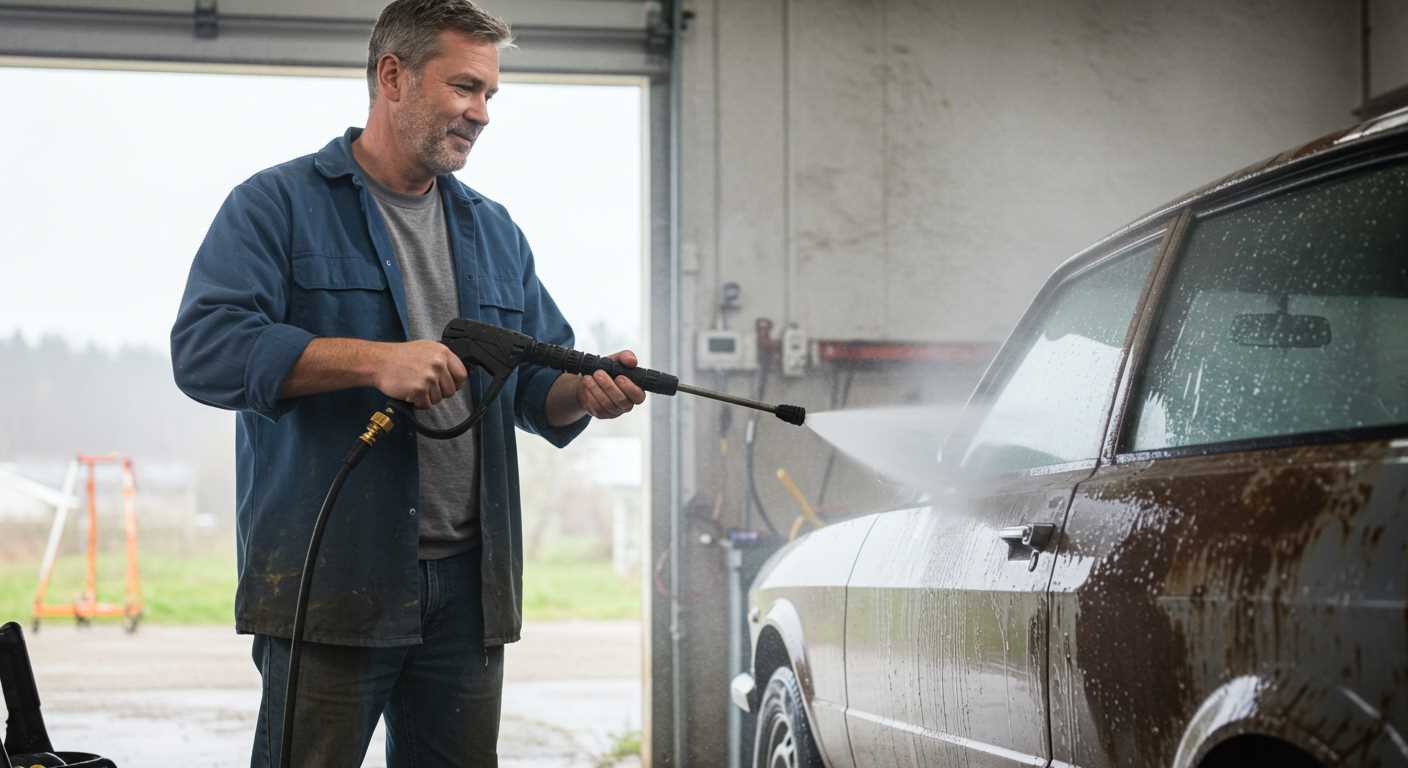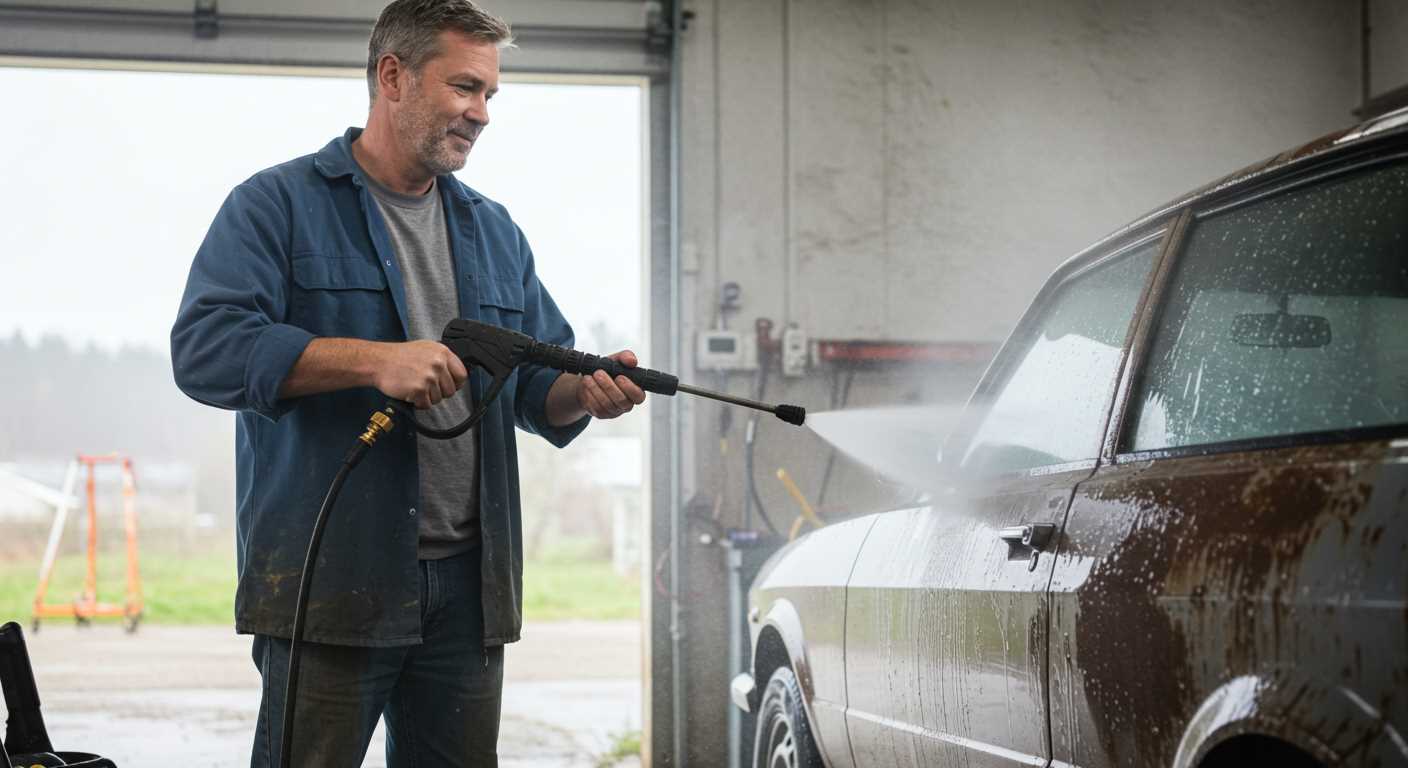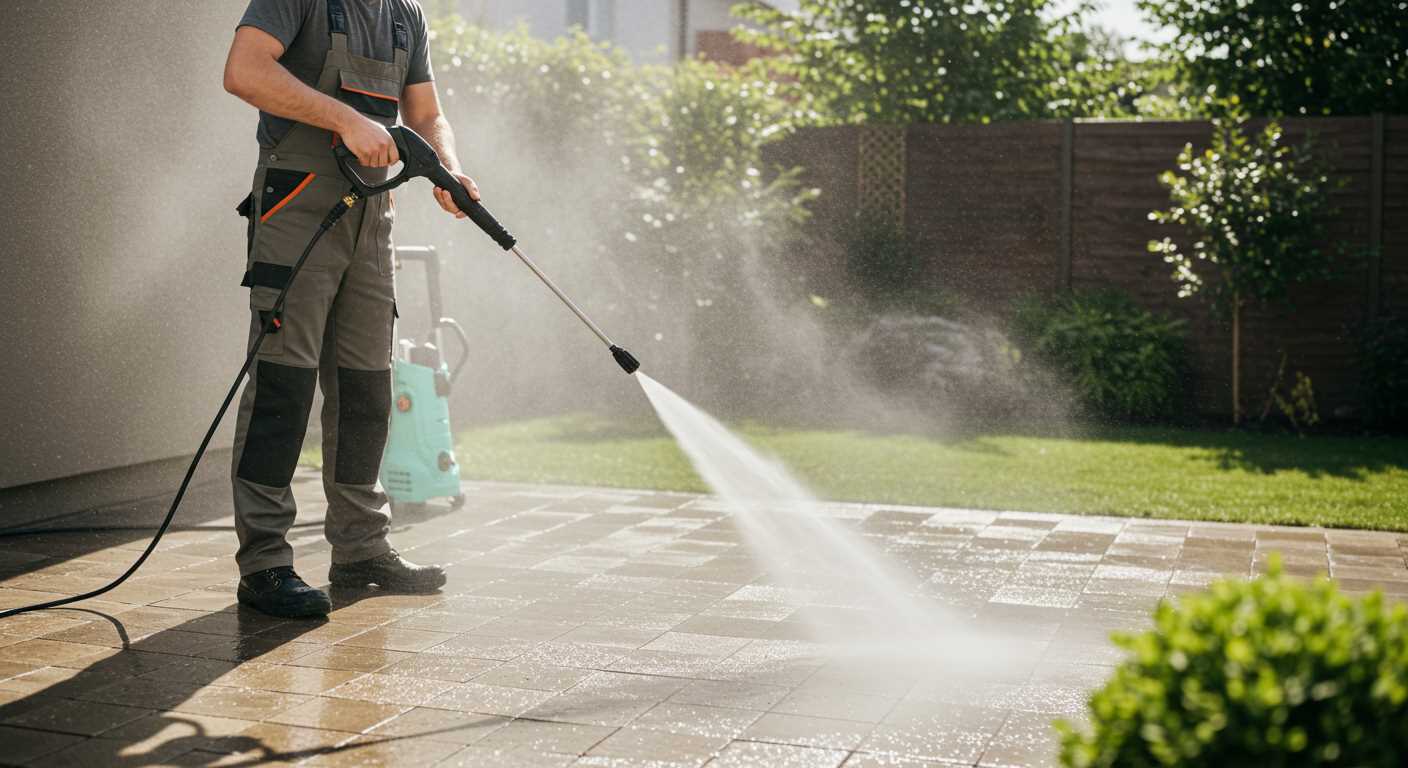




Directly adding Jeyes Fluid to your high-powered cleaning unit is not advisable. This product contains strong chemicals that can damage internal components, leading to costly repairs. Instead, consider using it separately for disinfecting surfaces before or after the washing process.
In my experience, many users mistakenly believe that introducing this type of cleaner enhances the cleaning capability of their machines. During my time testing various models, I encountered numerous instances where users ended up with clogged nozzles and malfunctioning pumps due to improper chemical use. Always refer to the manufacturer’s guidelines for acceptable cleaning solutions.
For effective sanitation, dilute Jeyes Fluid with water as per the instructions on the label and apply it manually. Allow it to sit briefly for optimal results. After that, rinse the area thoroughly with clean water using your equipment. This method not only ensures the longevity of your machine but also guarantees a thorough clean without risking damage.
Understanding Jeyes Fluid and Its Uses
For outdoor cleaning tasks, Jeyes Fluid serves as a powerful disinfectant and cleaner. It effectively tackles stubborn stains, particularly on patios and driveways, where algae and moss tend to accumulate. When using this product, it’s crucial to follow the manufacturer’s instructions for dilution and application to achieve optimal results without damage.
My experience with Jeyes Fluid has shown its versatility; it can be used in various areas, including gardens and around animal enclosures. Its strong formula not only cleans but also sanitises, making it a favourite for those managing outdoor spaces. Just remember, this cleaner is designed for specific applications and should not be mixed with other chemicals unless specified.
When considering cleaning surfaces like concrete, look for equipment that suits your needs. For instance, if you’re focused on a pressure washer for concrete patio, ensure it’s compatible with the cleaning agents you plan to use. This compatibility is key to effective cleaning while preserving the integrity of the surfaces.
Always conduct a spot test in an inconspicuous area to ensure the cleaner does not adversely affect the material. This precaution can save you from potential mishaps, especially with sensitive surfaces. My advice? Take the time to read labels and understand how to mix and apply cleaning solutions correctly to avoid costly mistakes.
Compatibility of Jeyes Fluid with Pressure Washers
Mixing Jeyes with your cleaning machine is not advisable. The chemical composition may damage internal components, leading to costly repairs. Always consult the manufacturer’s guidelines before introducing any substance not explicitly recommended.
Potential Risks
- Corrosion of seals and gaskets.
- Clogging of nozzles and filters.
- Damage to the pump mechanism.
Safe Alternatives
Instead of using Jeyes, consider specially formulated detergents designed for high-pressure applications. These products are tested for compatibility and will not compromise the lifespan of your device.
- Look for biodegradable options.
- Ensure the product is safe for use with your specific model.
- Check for recommendations from other users or experts.
In my experience, using the right cleaning agent not only enhances performance but also extends the life of the equipment. Stick to what’s recommended to avoid unnecessary hassles down the line.
Potential Risks of Using Jeyes Fluid in Pressure Washers
Utilising a cleaning agent not designed for specific equipment can lead to several complications. In my experience, introducing certain chemicals into a high-pressure cleaning system can result in damage to internal components. For instance, the seals and gaskets in these machines may degrade, leading to leaks or malfunctions.
Another concern is the risk of corrosion. The chemical composition of some products can react unfavourably with metal parts, compromising their integrity over time. I recall a case where a colleague used an unsuitable substance, resulting in significant rust on the internal tubing. The repair costs were substantial and time-consuming.
Additionally, using inappropriate solutions may void warranties. Manufacturers often stipulate which substances are permissible; straying from these guidelines can lead to loss of coverage. It’s crucial to consult the manual or manufacturer’s guidelines before experimenting with any cleaning agents.
Lastly, there is the potential for harmful fumes. Certain chemicals can produce noxious vapours when heated or mixed, which poses health risks. I’ve witnessed situations where inadequate ventilation during operation led to discomfort and health issues for users.
In summary, while it might be tempting to use a powerful cleaner for stubborn stains, the risks associated with using unapproved substances can far outweigh the benefits. Always prioritise the longevity of your equipment and your safety by sticking to recommended products.
Recommended Cleaning Solutions for Pressure Washers
For optimal results and equipment longevity, utilise cleaning agents specifically formulated for high-pressure cleaning systems. These products are designed to mix well with water and maintain the integrity of your machine while effectively breaking down tough grime.
Alkaline-Based Cleaners
Alkaline solutions are excellent for removing oil, grease, and heavy dirt. I recall a particularly stubborn oil stain on my driveway that refused to budge. After applying a high-quality alkaline cleaner, combined with hot water, the results were remarkable. Always ensure the concentration is appropriate for your model to prevent damage.
Biodegradable Cleaners
Choosing eco-friendly options can be beneficial for both the environment and your equipment. Biodegradable formulations often contain natural ingredients that are tough on dirt but gentle on hoses and seals. I remember using a plant-based cleaner on my patio; the results were impressive, and I felt good knowing I wasn’t harming the garden. Always check the label for compatibility with your equipment.
For specific tasks, such as cleaning vehicles or patios, there are dedicated solutions available. Vehicle shampoos, for instance, usually contain wax for added shine and protection. When washing cars, I’ve found that foaming agents work well, creating a thick lather that clings to surfaces, lifting dirt away effectively.
Lastly, always rinse thoroughly after using any cleaning product to avoid residue build-up and potential damage to the surfaces you clean. Each type of cleaner serves a purpose, and selecting the right one can greatly enhance your cleaning efficiency and maintain the performance of your equipment.
Step-by-Step Guide to Using Chemicals in High-Pressure Cleaners
Begin with reading the manufacturer’s instructions for your equipment. Each model has specific guidelines regarding chemical usage. Failure to follow these can void warranties or cause damage.
Next, prepare the area. Ensure the surroundings are clear of obstacles and that you’re wearing appropriate protective gear. Safety goggles and gloves are a must when handling concentrated solutions.
Mix the cleaning solution according to the instructions provided on the label. Accurate dilution is key to achieving the desired results without harming surfaces or equipment.
Use a dedicated chemical injector if available. This device allows for proper mixing and application of the solution, ensuring even distribution and preventing clogging in hoses or nozzles.
Test on a small, inconspicuous area first. This step helps determine how the surface reacts to the chemical, preventing potential damage or discoloration.
Apply the solution from a distance of about 30 cm to avoid oversaturation. Allow adequate dwell time as specified, which lets the cleaner work effectively on the surface.
After the dwell time, rinse thoroughly with clean water. This is crucial to remove all chemical residues, ensuring no harm comes to plants or pets nearby.
For recommendations on suitable cleaning agents, check out the best chemicals for deck pressure washing. This resource offers insights into effective products tailored for various tasks.
Finally, clean your equipment after use. Rinse any chemical residues from hoses and nozzles to maintain performance and prolong the life of your machine.
| Step | Description |
|---|---|
| 1 | Read manufacturer’s instructions. |
| 2 | Prepare the area and wear protective gear. |
| 3 | Mix the cleaning solution as per label instructions. |
| 4 | Use a chemical injector for proper application. |
| 5 | Test on a small area. |
| 6 | Apply solution and allow dwell time. |
| 7 | Rinse thoroughly with clean water. |
| 8 | Clean equipment after use. |
Alternatives to Jeyes Fluid for Outdoor Cleaning
For outdoor cleaning tasks, there are several alternatives to Jeyes fluid that provide effective results without risking damage to equipment. One standout option is a biodegradable cleaner, which is gentle on surfaces yet powerful enough to tackle grime and stains. These products often contain natural ingredients that break down dirt and are safe for use around plants and animals.
Household Vinegar
Household vinegar is another excellent substitute. Its acidic nature helps dissolve mineral deposits and organic matter. I’ve used it extensively for cleaning patios and driveways. Simply mix one part vinegar with one part water and apply it using a sprayer. Rinse thoroughly after a few minutes to avoid any lingering odour.
Baking Soda Solution
Baking soda is not just for baking; it’s a powerhouse for outdoor cleaning too. Create a paste with water and apply it to stubborn stains. Let it sit for a while before scrubbing. This method has worked wonders on my outdoor furniture and pathways. Plus, it’s non-toxic and inexpensive.
For tougher jobs, consider using a dedicated outdoor cleaner that specifically addresses the type of surface you’re working on. There are products designed for wood, concrete, and even for removing mould and mildew. These formulations often come with clear instructions for use and dilution, ensuring optimal results without damaging your tools.
Lastly, if you’re looking for convenience, many brands now offer ready-to-use outdoor cleaning solutions that are compatible with various cleaning devices. Always check the label to ensure compatibility with your equipment before use. These alternatives not only keep your outdoor spaces clean but also extend the life of your cleaning gear.




.jpg)


